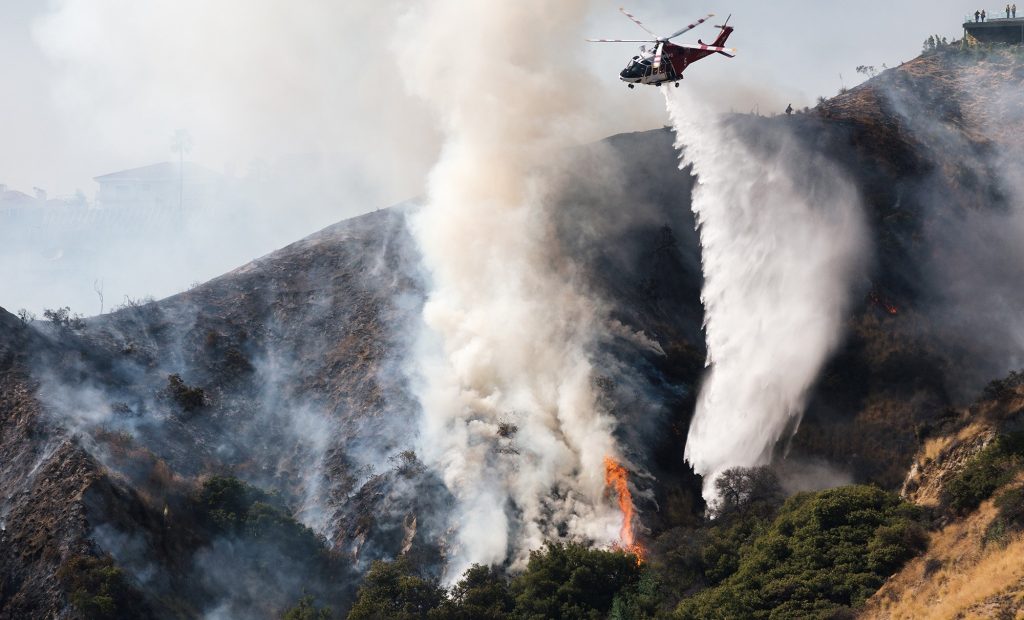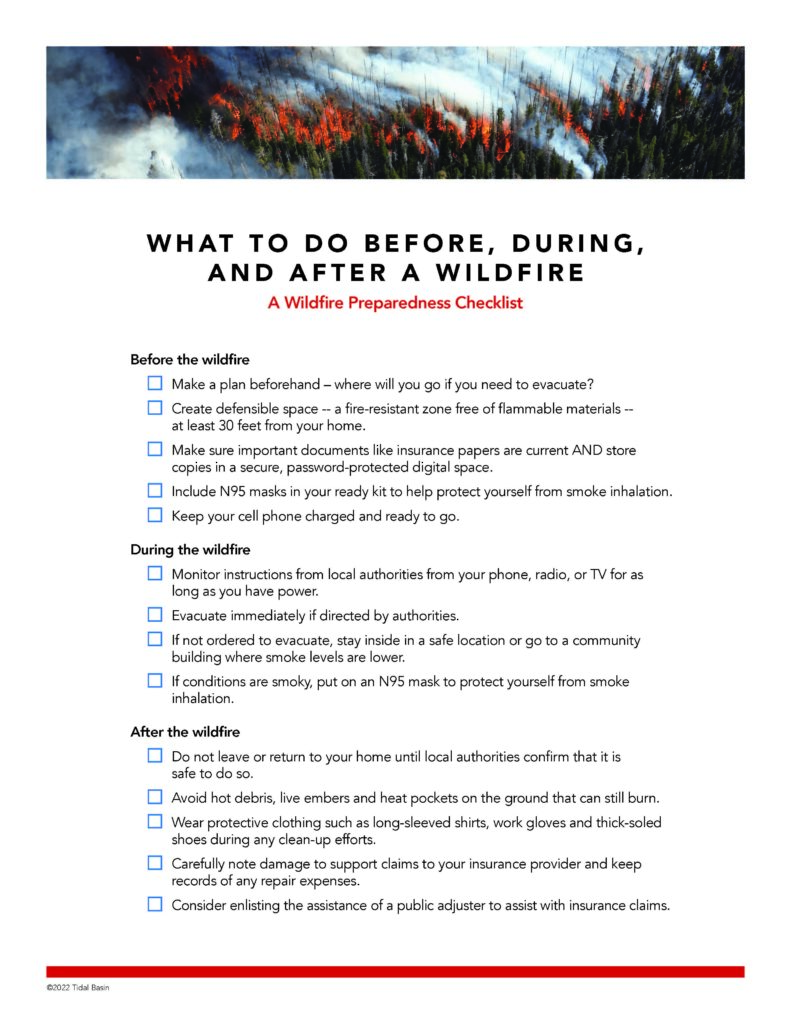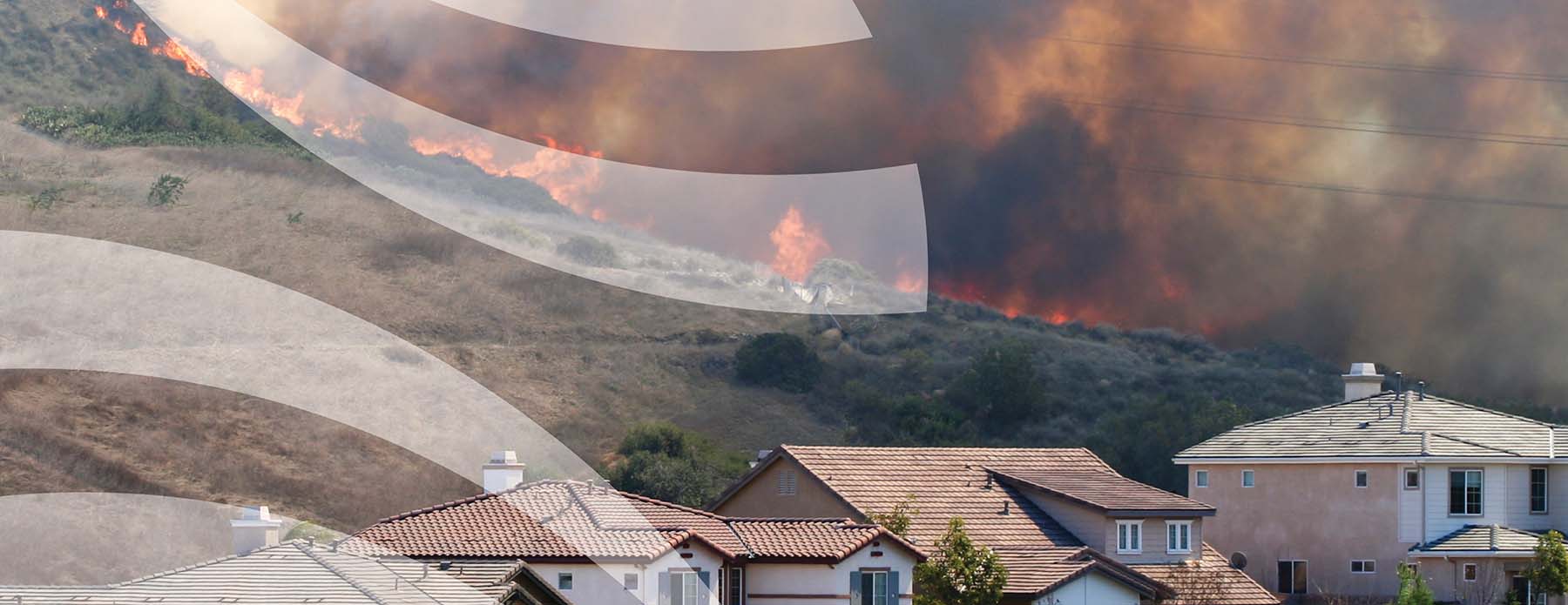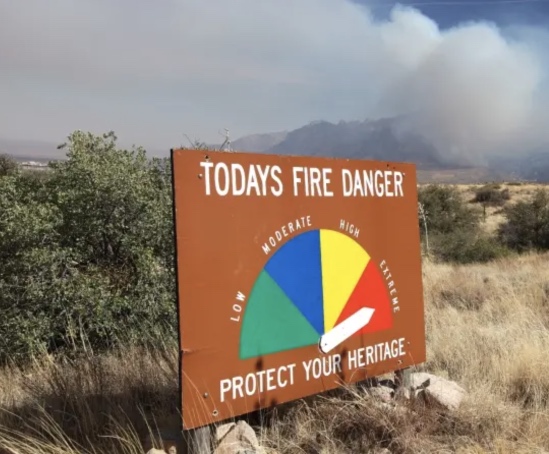Wildfire Resource Center
Up-to-date information, checklists and tips to help you prepare and recover
Is your community prepared for wildfire season?
About wildfires
Wildfires typically take place in natural areas, such as forests and prairies. They can quickly spread to communities and devastate buildings and personal property.
Grants information
There are several grant programs available for those in wildfire-prone areas. Some are national programs, while others are available only to California residents. There are a number of programs designed specifically for wildfire mitigation and recovery. These include the Hazard Mitigation Grant Program Post Fire, PrepareCA Jumpstart,Fire Management Assistance Grants (FMAG), and more.
Preparedness tips
Don’t wait to prepare. Not sure where to get started? We’ve curated a few different resources to help you and your community learn how to be prepared. Access them in the resources section above.

Protecting your lungs from wildfire smoke
Brady Scott, a fellow at the American Association for Respiratory Care, recommends that people stay indoors as much as possible, with closed doors and windows. That includes activities like exercise, which can cause stress on the lungs. He added that people with respiratory-related health conditions, including asthma, should monitor their symptoms closely. They should also ensure their medications, like inhalers, are available and not expired.
For many people, being indoors is not an option. Putting on a mask is the next best thing if you must be outdoors. Experts say a well-fitting N95 mask can help reduce the quantity of fine particles entering the lungs to help mitigate negative health effects.
Helpful resources and recommended reading
We’ve assembled resources from government organizations and entities such as the National Interagency Fire Center, US Fire Administration, US Department of Agriculture: Forest Service and the National Oceanic and Atmospheric Administration to help you learn and prepare for wildfires.
They span a broad list of topics, including wildfire preparation guides, tools and additional expert resources to assist with future wildfire preparedness and response strategies.
National Interagency Fire Center
US Department of Agriculture: Forest Service
National Oceanic and Atmospheric Administration
Resources and downloads

Wildfire Preparedness Checklist

Hazard Mitigation Grant Program Post Fire
Stay safe with insights from our experts

Protect Your Property From Wildfires With Defensible Spaces
Learn how creating a defensible space around your property can protect it from the devastating effects of wildfires. Discover effective strategies for wildfire prevention, preparedness, and response to keep your home safe.

From prevention to resilience: Strategies in wildfire mitigation
Explore a multifaceted approach to wildfire mitigation. From creating defensible spaces to early detection systems, discover strategies fostering resilient communities, protecting lives & property.
What our experts have to say
“Controlling fires is the responsibility first of the local community, then it goes up to the state if necessary. Sometimes, however, the efforts may not be enough. FEMA has a program called the Fire Management Assistance Grant (FMAG) that provides assistance in the form of grants for equipment, supplies, and certain personnel costs. This program is for the mitigation, management, and control of fire on public or private land.”
– Carlos J. Castillo, President, Federal Services
“Wildfires need to be respected because they are nature’s terror weapon. Wildfires can result in complete devastation, with their after-effects lasting generations. You may not encounter one for decades, and then you smell smoke.
Communities’ encroachment into wooded areas, warmer and drier conditions, and ineffective forest and rangeland management are just a few elements contributing to more intense wildfires, so we need to be alert. We need to prepare.
Individuals need to take responsibility, with a sense of urgency, to protect themselves, their families, and their property. Create a viable defensible space around your property and use fire-resistant materials whenever possible. Be familiar with and practice your evacuation routes; you cannot fight a wildfire with a garden hose. Create go-kits that include essential documents and medicines. Urge your community to adopt area-wide fire prevention practices and enhancement of fire response.”
– Mark Stephenson II, Mitigation Grant Manager

Carlos J. Castillo
Sr. Vice President, FEMA & DHS Markets

Mark Stephenson II
Mitigation Grant Manager